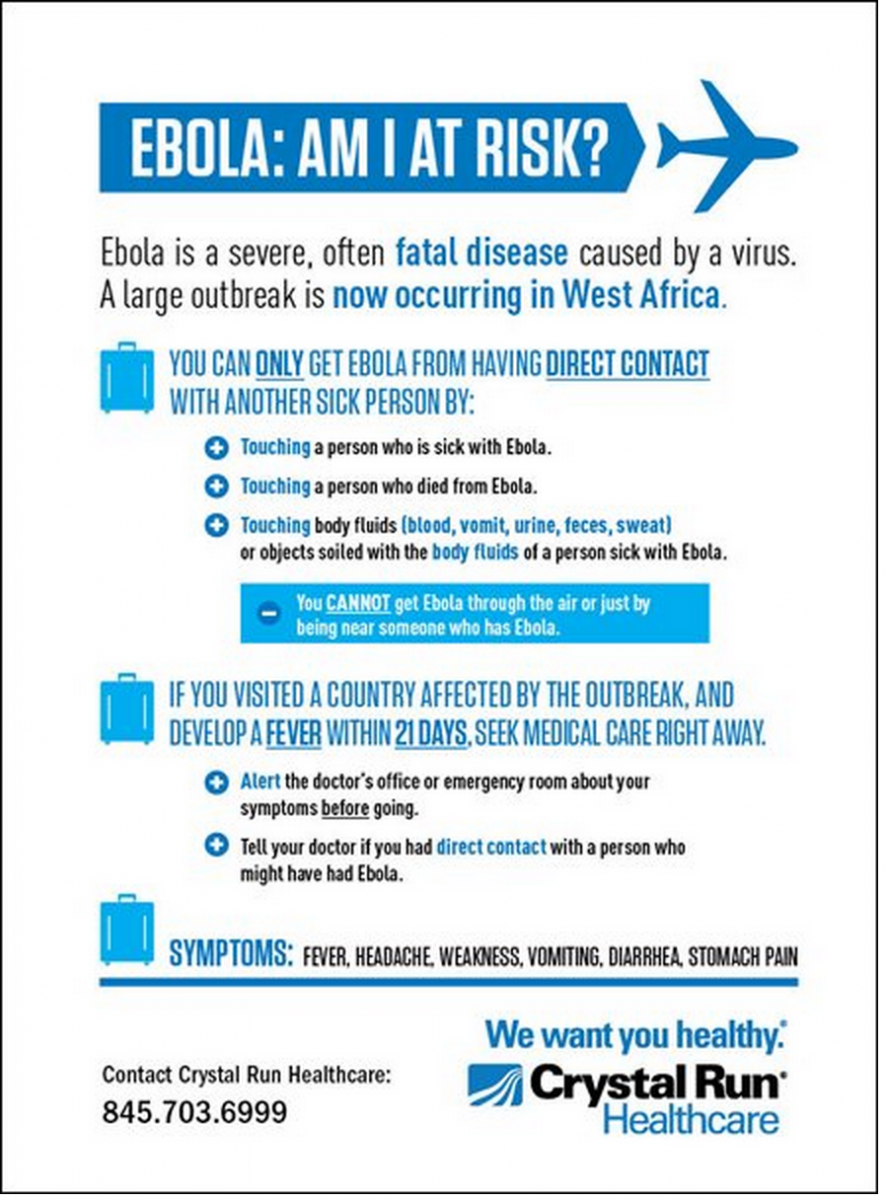Facts about Ebola
What is Ebola?
Ebola is a rare and deadly disease found in several African countries. Ebola was discovered in 1976 near the Ebola River in the Democratic Republic of Congo.
How is Ebola spread?
Ebola is spread through direct contact with blood and body fluids of a person who is sick with Ebola or through needles or other objects that have been contaminated with the virus. Ebola is not spread through the air or by water, or by food, in general.
Who is most at risk to Ebola?
Healthcare providers caring for Ebola patients and family and friends in close contact with Ebola patients are at highest risk of getting sick because they may come in direct contact with the blood or body fluids of sick individuals.
What are the symptoms of Ebola?
Symptoms of Ebola appear 2-21 days after being exposed-8-10 days is most common.
Symptoms:
- Fever
- Severe headache
- Muscle pain
- Stomach pain
- Vomiting diarrhea
- Bleeding and bruising
*These signs and symptoms may appear between 2 and 21 days after exposure. A person infected with Ebola is contagious once symptoms appear.
What is the treatment for Ebola?
No specific vaccine or medicine has been proven to cure Ebola. Signs and symptoms of Ebola are treated as they appear. Early recognition of Ebola is important for providing appropriate care and preventing the spread of infection.
How can I protect myself against Ebola?
Nonessential travel to an area affected by an Ebola outbreak should in general be avoided. In certain instances enhanced precautions should be taken to reduce disease risk by those who do travel. These include the following:
Wash hands thoroughly and often
- Avoid contact with blood and body fluids of any person, especially someone who is sick
- Do not handle items that may have come in contact with an infected person’s blood or body fluids
- Do not touch the body of someone who has died from Ebola
- Avoid hospitals where Ebola patients are being treated. The U.S. Embassy or consulate is often able to provide advice on medical facilities
- Seek medical care immediately if you develop fever (temperature of 101.5F) and stomach pain, or unexplained bruising or bleeding.
- Limit contact with other people until and when you go to the doctor. Do not travel anywhere else besides a healthcare facility.

Where can I get more information on Ebola?
www.dshs.state.tx.us
www.cdc.gov
Reference:
Centers for Disease Control and Prevention (CDC). September 2014

 Optum Radiology at Crystal Run Healthcare
Optum Radiology at Crystal Run Healthcare Same and next-day pediatric appointments
Same and next-day pediatric appointments